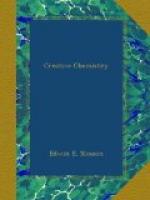The extensive use of poison gas in warfare by all the belligerents is a vindication of the American protest at the Hague Conference against its prohibition. At the First Conference of 1899 Captain Mahan argued very sensibly that gas shells were no worse than other projectiles and might indeed prove more merciful and that it was illogical to prohibit a weapon merely because of its novelty. The British delegates voted with the Americans in opposition to the clause “the contracting parties agree to abstain from the use of projectiles the sole object of which is the diffusion of asphyxiating or deleterious gases.” But both Great Britain and Germany later agreed to the provision. The use of poison gas by Germany without warning was therefore an act of treachery and a violation of her pledge, but the United States has consistently refused to bind herself to any such restriction. The facts reported by General Amos A. Fries, in command of the overseas branch of the American Chemical Warfare Service, give ample support to the American contention at The Hague:
Out of 1000 gas casualties there are from 30 to 40 fatalities, while out of 1000 high explosive casualties the number of fatalities run from 200 to 250. While exact figures are as yet not available concerning the men permanently crippled or blinded by high explosives one has only to witness the debarkation of a shipload of troops to be convinced that the number is very large. On the other hand there is, so far as known at present, not a single case of permanent disability or blindness among our troops due to gas and this in face of the fact that the Germans used relatively large quantities of this material.
In the light of these facts the prejudice against the use of gas must gradually give way; for the statement made to the effect that its use is contrary to the principles of humanity will apply with far greater force to the use of high explosives. As a matter of fact, for certain purposes toxic gas is an ideal agent. For example, it is difficult to imagine any agent more effective or more humane that may be used to render an opposing battery ineffective or to protect retreating troops.
Captain Mahan’s argument at The Hague against the proposed prohibition of poison gas is so cogent and well expressed that it has been quoted in treatises on international law ever since. These reasons were, briefly:
1. That no shell emitting such gases is as yet in practical use or has undergone adequate experiment; consequently, a vote taken now would be taken in ignorance of the facts as to whether the results would be of a decisive character or whether injury in excess of that necessary to attain the end of warfare—the immediate disabling of the enemy—would be inflicted.
2. That the reproach of cruelty and perfidy, addressed against these supposed shells, was equally uttered formerly against firearms




